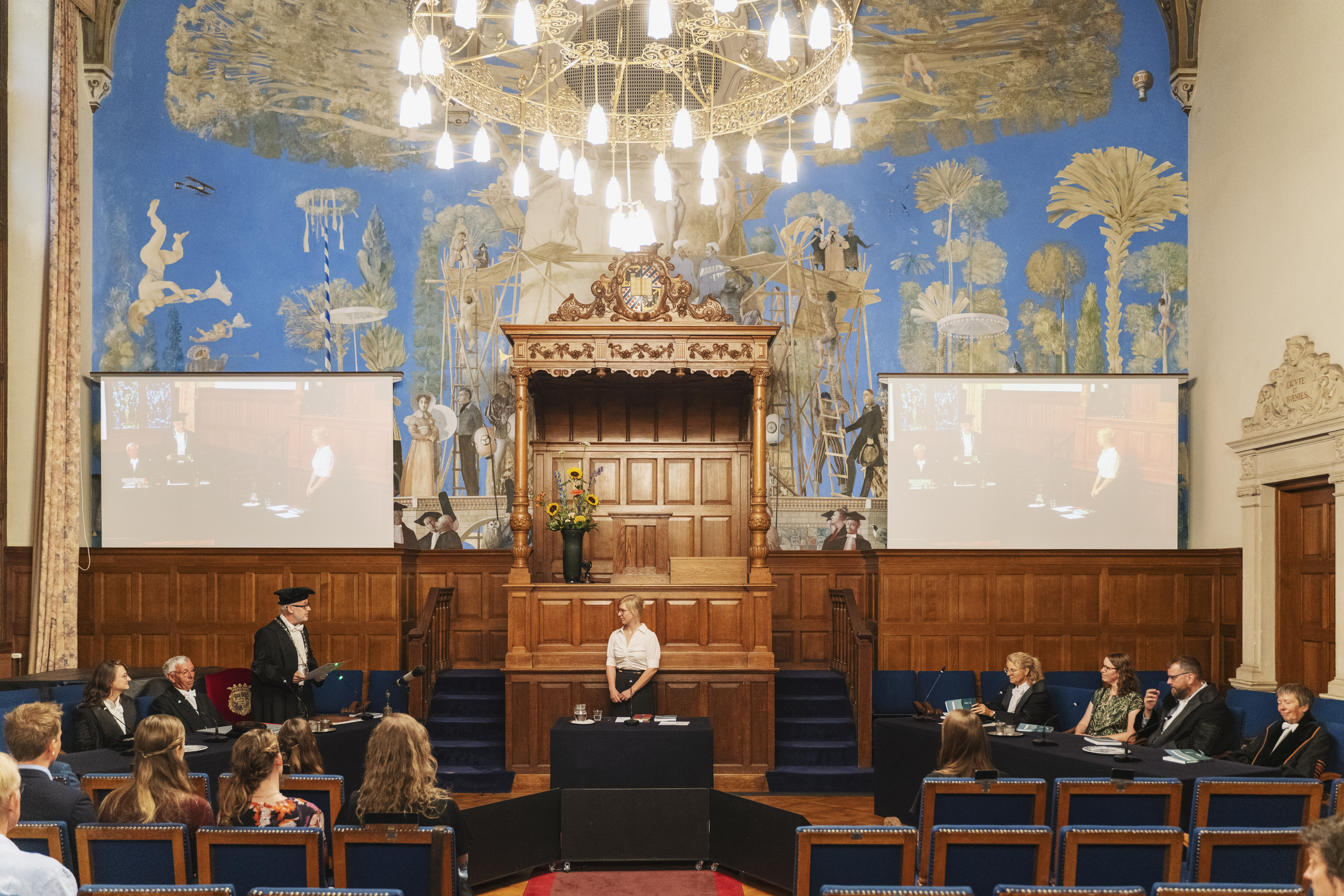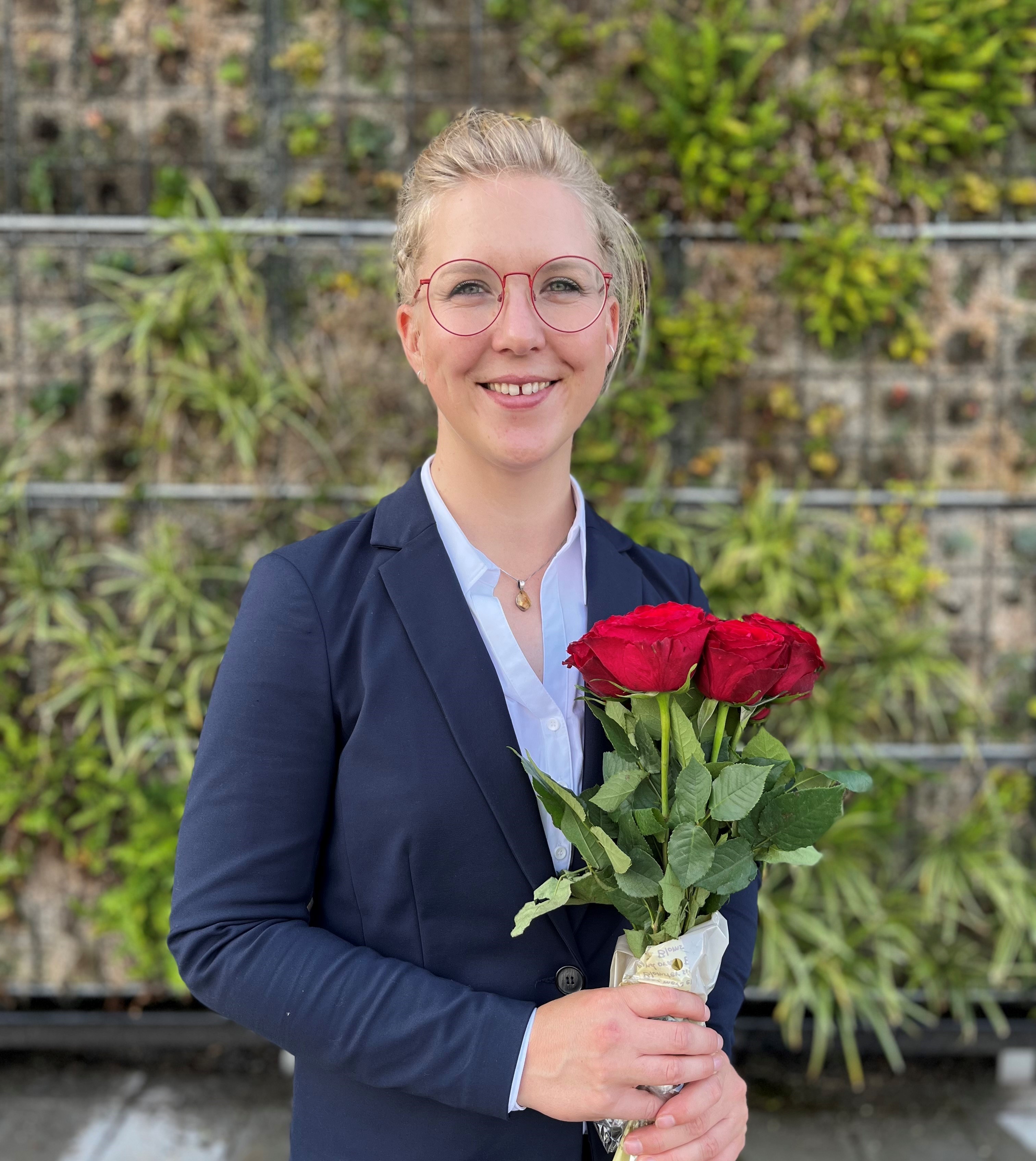
Eva Mærsk has been awarded her PhD for a highly relevant topic
On Friday 9 September, Eva Mærsk defended her PhD project and was awarded her PhD degree. Eva's research focuses on what makes young people move from, or stay in, their home town while pursuing higher education.
No one wants to be kept, but many young people want to stay and relocate. And those who move out into the world want to stay connected to where they grew up - and perhaps return. But this requires active local communities and a new look at young people's migration patterns and the role of educational institutions in youth life.
These are some of the conclusions of a PhD project based on 1200 young people from Esbjerg and Copenhagen to find out why they chose to stay in, or move from, their home region while pursuing higher education.
On Friday 9 September, Eva Mærsk defended her PhD project and was awarded her PhD degree with great words from the assessment committee.
Eva can actually drink two glasses of champagne, because last Thursday she also defended her PhD at the University of Groningen and now has a double degree. A really great achievement!
If you weren't able to attend the defence, we've done a Q&A with Eva about her research and compiled a few articles that convey some of the results.
The article continues below the image.

How did you become interested in your field of research?
I've been interested in the meaning of place for people since high school, but my interest was cemented when I lived on Langeland and drank my coffee every morning with a view of green meadows and wild horses - but everyone still asked me "when" I was coming to Copenhagen because it was the only "right" place to be for "someone like me". So I became interested in the underlying norms and expectations that shape young people's relationship to place and education, especially in light of the rural/urban discourse in Denmark.
What is the main focus of your PhD?
In my PhD, I investigate how young people from peripheral areas' choices to move - or stay - are intertwined with contemporary narratives of identity and place. Throughout my project, I relate this to how regions and smaller municipalities can (re)attract and retain young people in their area.
What are the main points of your PhD?
My main point is that due to the rapid development of Western education systems over the last 30 years, we need to look at young people's sense of place and educational mobility in a new way.
Firstly, contrary to what the media often tells us, there are many advantages to being a "stayer" in both urban and rural communities. However, urban educational institutions are still significantly more attractive than rural ones due to the local narratives and conditions for youth life associated with the respective locations.
Read more about Eva's research
If you want to know more about Eva's research, you can read these articles:
Who are your results aimed at and how can they use them?
My results are aimed at both national and municipal politicians, officials and educational institutions outside of Copenhagen and Aarhus (which are the only two areas in Denmark that do not have problems attracting young people).
If you were to do further research, what would you investigate?
I would like to research meaningful learning environments and places. Educational institutions play a crucial role in the educational lives of young people, the communities in which they are located and society as a whole. The Danish education system will evolve at an incredible pace in the coming years - and I want to understand and contribute knowledge to how educational institutions become meaningful places to be.
